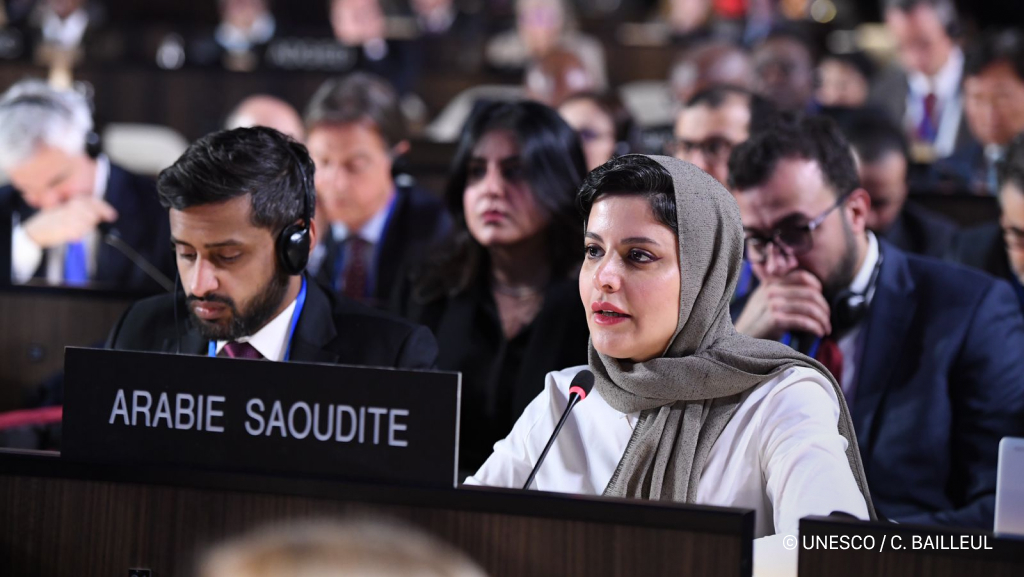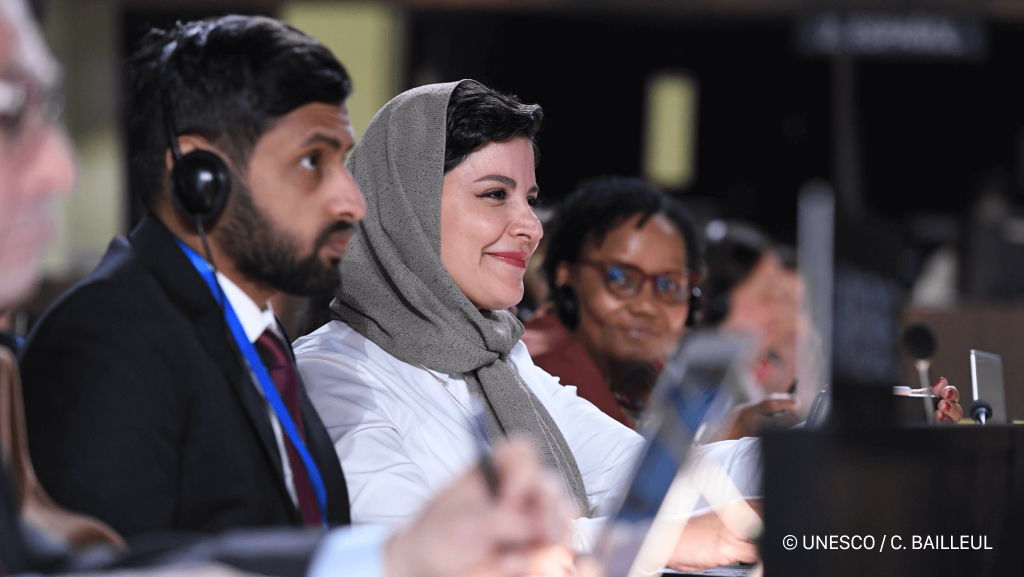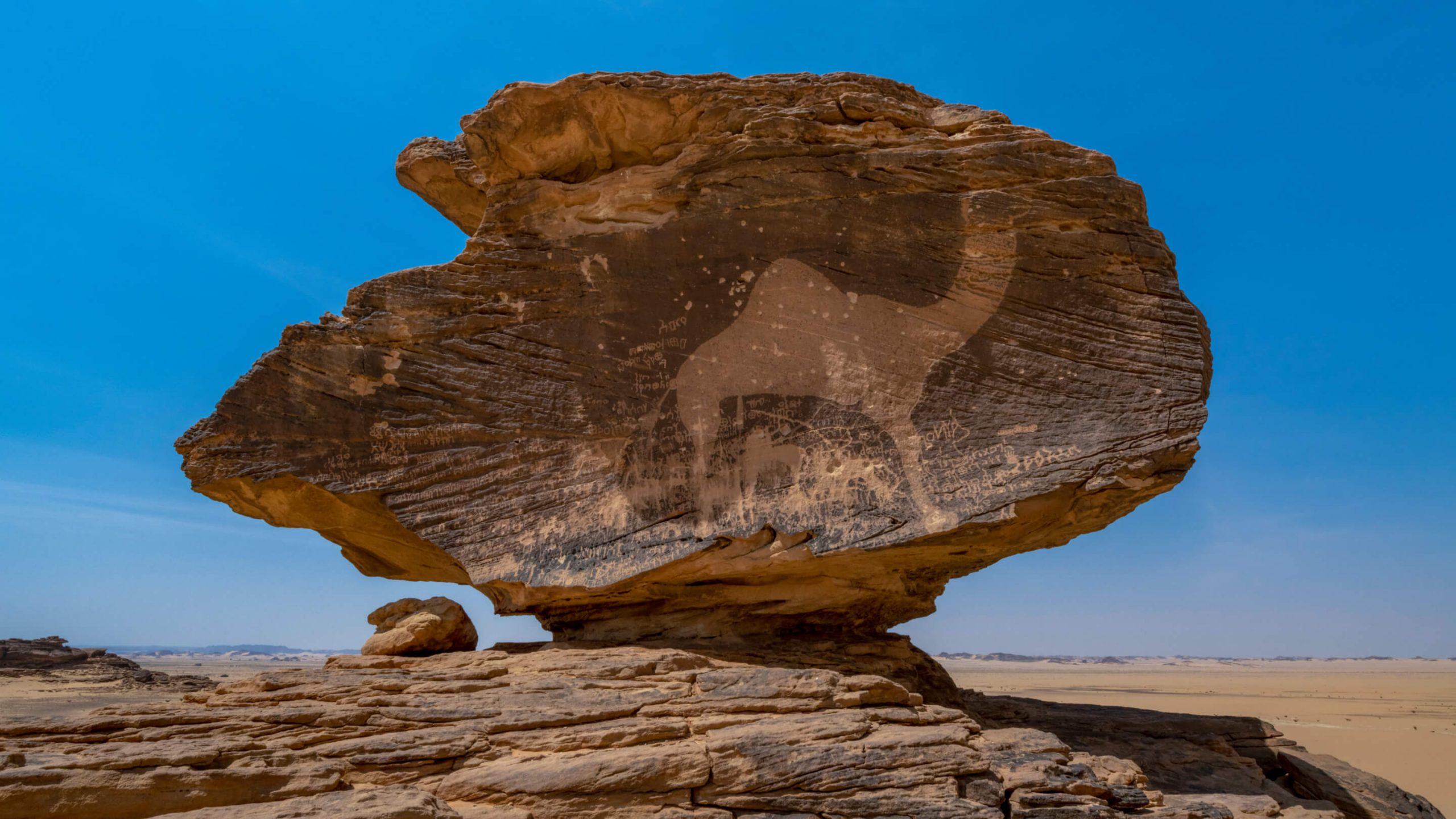The Kingdom of Saudi Arabia Participates in the Proceedings of the 216th Session of the UNESCO Executive Board

The Kingdom, represented by the Permanent Delegation of the Kingdom of Saudi Arabia to UNESCO, is participating in the proceedings of the 216th session of the Executive Board of the United Nations Educational, Scientific and Cultural Organization (UNESCO). The inaugural sessions of this event, which are held at the Organization’s headquarters in the French capital, Paris, commenced today and will continue until the 24th of this month.
The Kingdom is represented in the proceedings of the 216th session of the UNESCO Executive Board by Her Highness Princess Haifa bint Abdulaziz Al Mogrin, the Permanent Delegate of the Kingdom of Saudi Arabia to UNESCO, the Chairperson of the World Heritage Committee, the Chairperson of the Program and External Relations Committee emanating from the Executive Board, in cooperation with the Saudi National Committee for Education, Culture and Science.

Her Highness delivered the Kingdom’s speech at the opening session of the Board’s proceedings, where she affirmed that the Kingdom is an active member in UNESCO’s activities and the Organization’s mission in establishing the foundations of peace. She emphasized the Kingdom’s efforts in deepening international cooperation between the 193 member states of the Organization and contributing to achieving the goals of the United Nations’ 2030 Agenda for Sustainable Development, which are aligned with the goals of Saudi Vision 2030.
The Permanent Delegate also thanked the Organization for its interest in the draft resolution presented by the Kingdom and the State of Kuwait during the proceedings of the 215th session of the Executive Board. Her Highness pointed out that this resolution project aims to create a flexible global system for capacity building and knowledge transfer, which will enable the neediest countries to achieve self-sufficiency in accessing information to confront any future pandemic. This project aims to establish a global framework for open science in the face of pandemics.
Her Highness indicated the Kingdom’s support for the Small Island Developing States strategy, affirming that the Kingdom looks forward to effective and practical implementation of the strategy and to collective work that can serve the sustainable development of these states.
HH Princess Haifa additionally highlighted the success of the World Conference on Cultural Policies (Mondiacult), held in the United Mexican States last year. She pointed out the importance of including the cultural dimension in formulating the United Nations’ post-2030 sustainable development agenda. She confirmed the Kingdom’s determination to sustain culture in its development plan after Saudi Vision 2030. She also expressed her pride in the Kingdom’s role as the first country to initiate the inclusion of a cultural dimension in the G20 Summit agenda and that of UNESCO as a stakeholder in the first joint meeting of G20 Culture Ministers during its presidency of the 2020 G20 Summit.
The Permanent Delegate emphasized the depth of the relationship between the Kingdom and UNESCO, referring to Saudi Arabia’s hosting of the Global Ministerial Conference on Values, Ethics, and Sports Integrity 2023 in February of this year. Her Highness referred to the partnership between the Royal Commission for AlUla and UNESCO, which includes preserving documentary heritage in AlUla while raising awareness on the site and activating its potential as a resource for dialogue between cultures and teaching global citizenship.
Her Highness concluded her speech by expressing the Kingdom’s aspiration to host the World Heritage Committee in the Saudi capital Riyadh in September, the first in-person meeting of this committee in the last four years, which will allow for discussions on the registration of heritage sites of great importance on a global level.
The Kingdom’s strategic position in the Organization is reflected by its membership in three central entities in UNESCO: the Executive Board, which includes 58 member states; the World Heritage Committee, and the Intergovernmental Committee for the Safeguarding of the Intangible Cultural Heritage.



